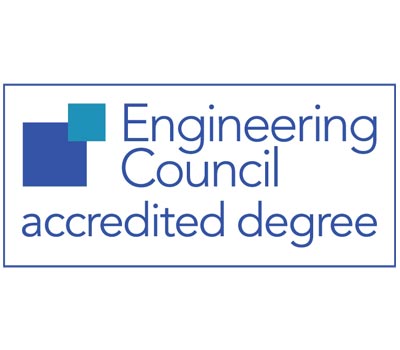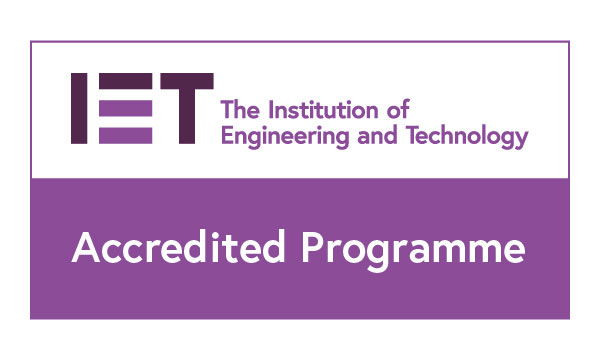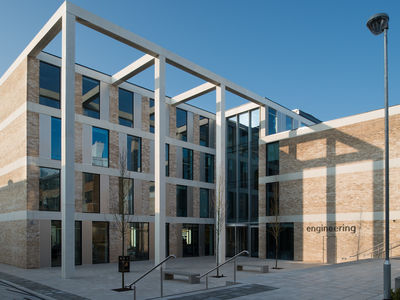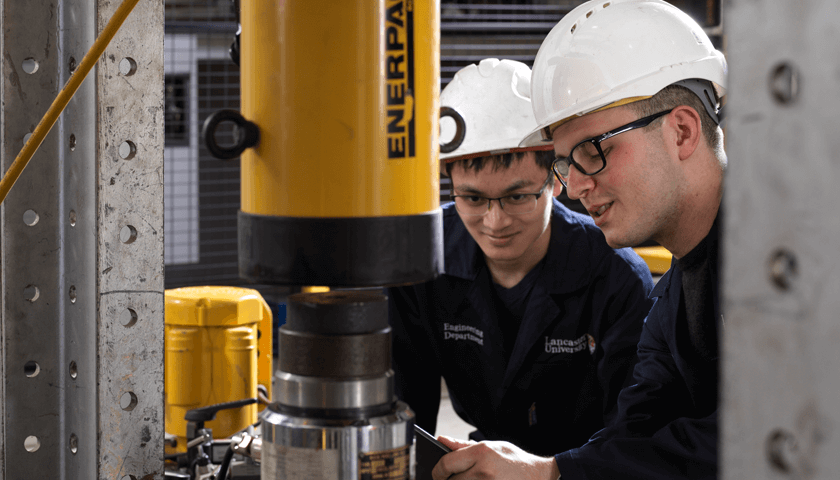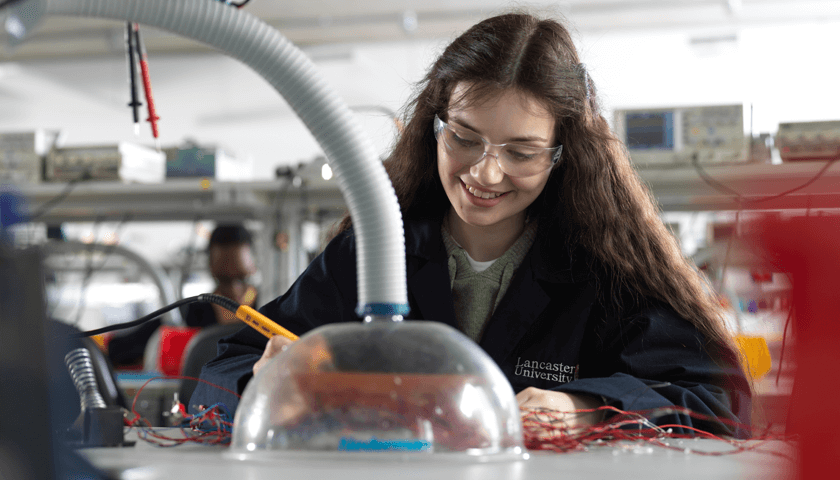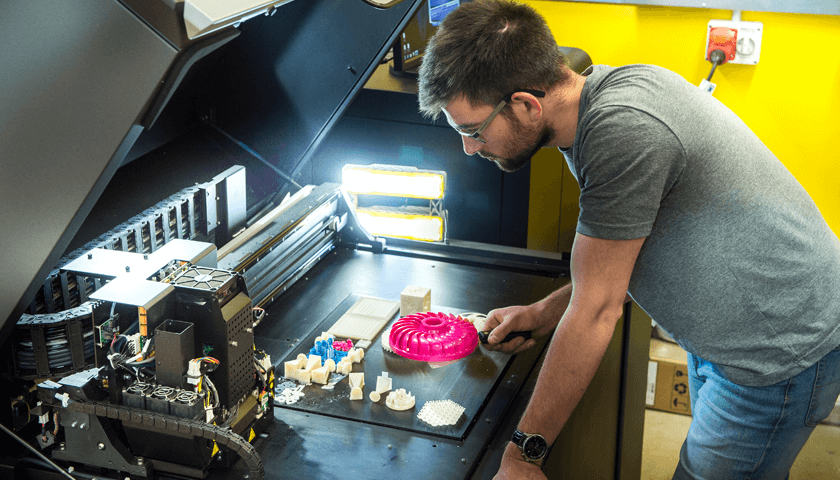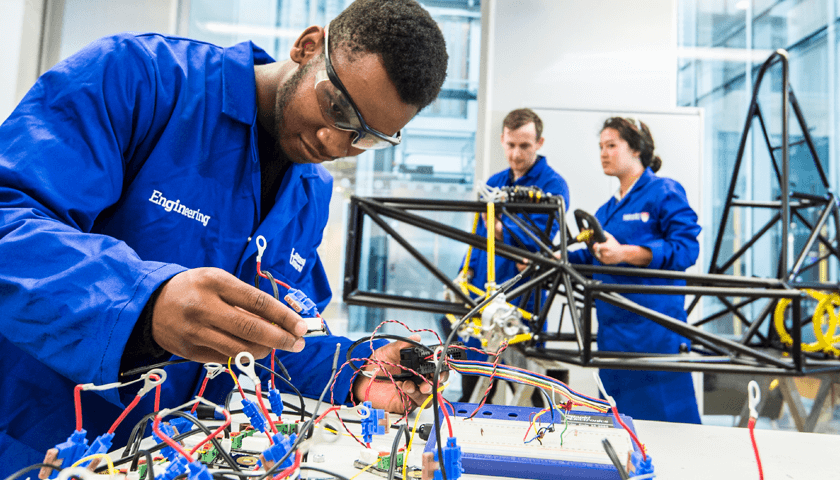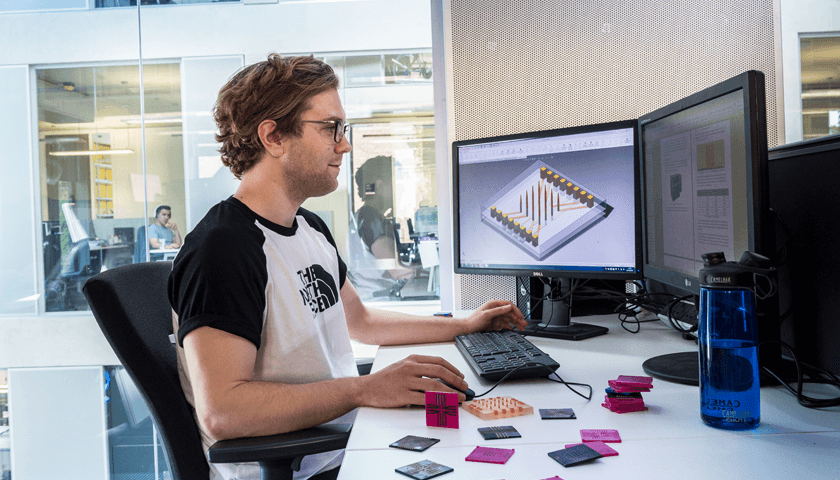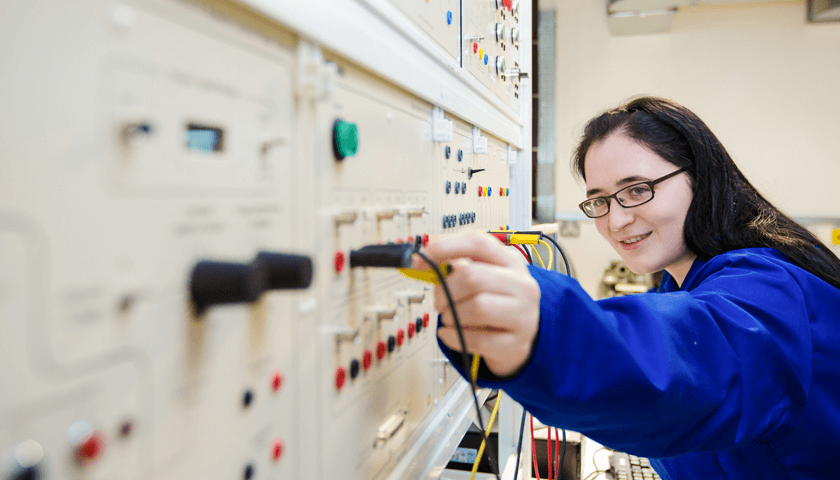Virtually every modern technology is underpinned by electronic or electrical engineering, and it is difficult to think of an application where it doesn’t have influence. From small intricate electronic systems and smart things to large scale power plants, engineers are behind the design, development and testing of these technologies. Electronic and electrical engineers collaborate with other engineering specialists, so it’s crucial to have a broad understanding of general engineering and its applications. At Lancaster, your first year is dedicated to exactly this, and you’ll share this experience with all our School of Engineering students, regardless of their specialisation. We think this makes you a well-rounded graduate, with excellent teamwork and communications skills, prepared for a career pioneering the materials, technologies and processes of the future.
Get ready to join a thriving School where what you learn is directly informed by our research and expertise in smart embedded systems, novel electromagnetics, radio frequency engineering, and millimetre waves with THz signals. You’ll benefit from our work with organisations such as CERN and the European Space Agency as well as our strong links with industry.
Broaden your horizons
Enrich your university experience with a year overseas at one of our partner universities. In Year 4, head out to start your adventure and immerse yourself in a different cultural and academic community. We’ll support you all the way!
What to expect
Our five-year MEng Hons Electronic and Electrical Engineering (Study Abroad) degree starts with your general engineering first year and includes topics such as circuitry and instrumentation, heat transfer and manufacturing, which form a key requirement of modern electrical and electronic systems.
In years 2 and 3 you will specialise in electronic and electrical engineering, from developing your core skills as an engineer and building your familiarity and practical experience in power engineering, communications, analogue circuitry and digital systems. Working in our two new engineering buildings with state-of-the-art facilities, you’ll develop your creativity and technical skills as you design, build and test to solve real-world problems.
Take further steps towards professional engineering with management skills, project management, and industry engagement. Sustainability, safety, ethics and quality management are kept in focus too.
Master’s-level training
In your final year, you will work on a substantial project into a topic of your choice, often interdisciplinary in nature and linked with industry or one of our research groups, during which you will apply your specialisation to cutting-edge technology. Examples of previous projects include: digital telemetry for a race car; control and electrical power system design; wireless instrumentation for a renewable power system; a robotic humanoid; embedded control for a novel 3D printer; and high-frequency structures for 5G communication. This year will solidify your knowledge, placing you in an excellent position to launch your engineering career and progress toward achieving Chartered Engineer status.
Personal development
You will develop valuable transferable skills that make you highly desirable to future employers, such as working in collaboration, communication, and the ability to design and build a product or device. You will grow practical skills in diagnosis and testing, system maintenance, digital proficiencies, and the ability to consider and maintain work safety practices in a range of environments.
We hope you find your year overseas personally enriching. Our students often tell us that they return feeling more confident, self-assured and with a broader perspective to take into job interviews.
3 things our electronic and electrical engineering students would like you to know:
- The University is highly regarded for design in research and encourages us to do things differently, so we’re designing and innovating as we learn
- All of us engineers share the same newly-built facilities. You’ll find us designing circuits in B02, using integrated software in the computer labs, or putting the mechanical workshops to good use
- We benefit from industry input into the degree, and from the multidisciplinary approach to learning. All of the disciplines are connected in one way or another so the experience gained here can be applied to loads of different career paths
Will my course be four or five years?
Students beginning this course in 2025 will study for four years. Students beginning in 2026 will study a revised five-year course.


